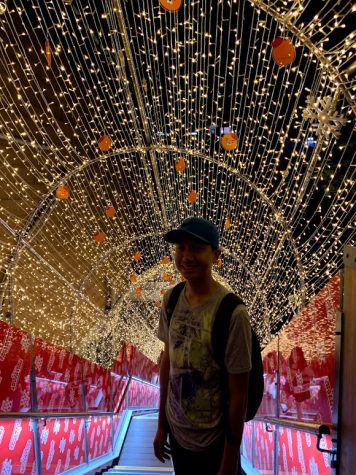DHS Responses to Parkland Shooting
On Valentine’s Day 2018, an event happened that occured which was all too recurrent. Another mass shooting, this time specifically at a school lead to seventeen dead and even more injured. It was committed by Nikolas Cruz, a nineteen year old with a mental illness who used to be a student at Stoneman Douglas High School (where the shooting took place). The event of another school shooting had me thinking, what do students think of this? Do students still feel safe? Do students have a solution? What do students really feel?
The most important question is: do students really feel safe on campus in light of the recent events? The majority all feel safe with a multitude of reasons. Freshman Alex Baker said that he doesn’t feel scared due to recent events. He stated, “Out of the people at the school, it is very unlikely for me to be shot, and if I was shot it would also be unlikely for me to die.”
For others, it wasn’t really the low percentage of death that didn’t scare them, but it was what they thought an event that wouldn’t happen at Dublin High School. Aidan Garcia stated, “I’m not scared because there’s no way it’s going to happen to me.” Although the response was apathetic, considering the statistics of a mass shooting, one affecting us remains tremendously low.
Now, one of the major consequences that has come out from the prevalence of mass shootings is the reactions of our thoughts to them. As more shootings happen, they tend to be something our mind accepts more. It is an Overton Window of sorts, where these events start to be accepted. An Overton Window is a concept used in political science which classifies the public’s views on specific issues. The window goes on the classical political spectrum with the Libertarian on one side and Authoritarian on the other side. As an idea becomes more and more to one side, the public’s reaction goes from popular, to acceptable, to unthinkable. This concept can be applied to these mass shootings where shootings were once thought as unthinkable to now starting to move in the mind of the Public to possibly more and more as something that keeps on happening, something inevitable. In fact, when asked if the prevalence of mass shootings has hurt her ability to sympathize with each individual one, Sydney Lundquist responded, “I cannot sympathize because there are too many shootings for me to realistically keep up with and know about.”
This is true, and it seems to be true for everyone. When the Rancho Tehama shooting happened in Northern California, there was not much outcry or outrage even though it happened much closer than the one in Florida. Baker (previously mentioned above) agrees that the sheer amount has reduced his response to each attack. “I care and feel bad for each attack but in the end it gets hard for me to go deeper due to how common and frequent these events happen.”
The burning question is if the problem mainly a mental health issue or a gun access issue. The responses to which one is more prevalent seems to be pretty split. As the Dublin Shield asked Esther Tae about this issue, she said the issue was more of mental health problem. Immediately after, Ananya Singh claimed it was a gun problem. Sophomore Arjav Rawal’s take was that it was both a gun issue and a mental health issue, but it could’ve been stopped with stricter and harder background checks. All perspectives have a point but a change coming from the shooting could be ill fated.
In the end, what occured in Parkland Florida is another deep rooted tragedy. Though tragic, the sheer number of these mass events makes it lack distinction which is really sad. This could be a new reality, but it could be also a way to spark change that seems to never come starting from the 2012 Sandy Hook shootings till now. There could easily be another discussion in the near future due to an event similar to this, but for now all thoughts, prayer, and hopeful change go to Florida.
Your donation will support the student journalists of Dublin High School. Your contribution will allow us to purchase equipment and cover our annual website hosting costs.

Kyle is a Junior at Dublin High and the Community Editor for the Dublin Shield. Outside of Journalism, Kyle enjoys playing Quizbowl (Jeopardy with teams),...


































